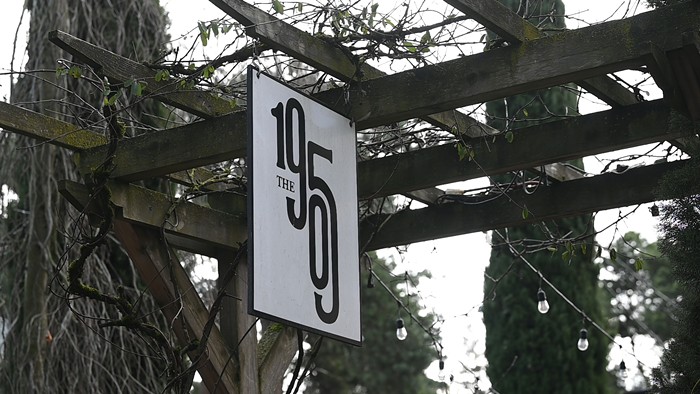Bands love to throw the term "family" around when referring to their close-knit musical kinfolk. Still, it's a hell of a lot easier to escape the clutches of a dysfunctional band than your screwed-up biological family, and 90 percent of musical collaborators have a few good years, tops, before they're chomping at the bit to "see other people." But after more than 10 years together, Rollerball, more than any band I've had the pleasure of knowing, are true family in every way that matters.
Keyboardist Mae Starr and bassist Monte Allen set their sights on Portland in 1993, escaping the isolated college town of Bozeman, Montana to come play music in a more cultured place. With the addition of drummer Gilles came Rollerball's 1997 debut, a moody tome of darkwave eruptions called Garlic. Horn players Shane de Leon and Amanda Mason Wiles joined the fold soon after, and from then on things began to get a little strange.
Like a turbo-charged snowball, the ensemble began picking up stylistic momentum, rumbling over genres as disparate as free jazz and new wave. The same spirit of sonic lawlessness often spilled over to the band's emotional presence, manifesting itself through both searing vocal melodrama and harrowing onstage meltdowns. Not surprisingly, Rollerball have scared off many a showgoer throughout the years, but have also amassed a cultish tribe of devotees, oddballs, and loadies. "Most people who really love music are kind of freaks," Allen asserts. "I guess weird people show up at our shows cause we're a sincere, working-class band, and there is usually a little chaos. Freaks love chaos."
While Rollerball often wobbles at the brink of chaos, in the studio they're a well-oiled machine, with a stunning body of recorded material under their belts, including their 12th full-length, simply titled Rollerball. The new album, released through Italian label Wallace Records, boasts the same elements that have forged Rollerball's identity—sinewy horn figures, smoky jazz-inflected pop numbers, and rushes of evocative ambient texture. What makes this disc such an enjoyable listen, though, is the keen, aesthetic unity of these comparatively bite-sized pieces, placing Rollerball on par with past milestones like Real Hair or 2001's Trail of the Butter Yeti.
Rollerball isn't likely to pen a self-help book for bands any time soon, but Starr has a few thoughts on what's kept this motley bunch in one piece while so many others have fallen by the wayside. "Maybe we have lasted because we have all traveled together, broke down together, slept all five of us together in a tent in North Dakota, faced deaths together. We all have learned as a band that sometimes saying nothing can be beautiful."


















